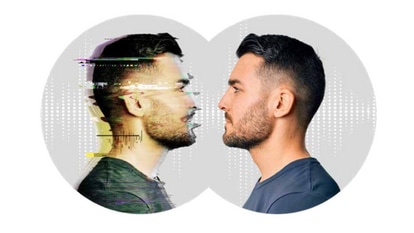National Technology Day: “Trends of increasing cyber attacks”, warns Prof. SK Shukla
Rampant use of technologies around AI, LLMs, Web3, and quantum computing could have implications in terms of cyber security and cyber crimes as we become more dependent on them.

Today is the National Technology Day. The day was observed for the first time in 1999 after India conducted a series of five successful nuclear bomb tests (Pokhran - II) in 1998. The move made India the sixth country in the world to successfully test nuclear weapons. While it was a breakthrough moment for us in terms of technological advancement, it also came with the burden of being responsible and ethical in terms of its usage. Now, 25 years later, we find ourselves in a similar situation with emerging technologies around artificial intelligence (AI), large language models (LLM), blockchain technology and more are growing exponentially.
With major tech companies doubling down on AI technology and the European Union (EU) working on drafting an AI act to regulate its usage, we are at a unique watershed moment as far as technology is concerned. The need of the hour is a sensible approach and a goal for the overall benefit of humanity. In an exclusive conversation with HT Tech, IIT-Kanpur professor Sandeep K. Shukla offered his insights into these emerging techs and what their impact on us could possibly be.
Q.1 How have you seen technology grow in the last year?
As usual, technology is growing exponentially in the fields of AI, Web3, to some extent Fintech. Certain other fields that are seeing growth but a bit slowly, and possibly a lot of the information is not necessarily in the public domain -- such as Quantum Computing. The growth in AI with the release of the Large Language Models (LLMs) such as GPT has been rather spectacular -- even though the developments have been accelerating over the last few years, but with the public domain release of ChatGPT -- and subsequent limited release of Bard by Google -- it has given rise to a lot of excitement and equal amount of concerns related to ethics, regulation, and dangers of unconstrained growth of AI technologies. Especially, with these LLMs' tendency to "hallucinate" and possibility of their use to create wide spread misinformation campaigns have given rise to calls for regulation and restraint.
Web3 technology is also growing with the unprecedented growth in the blockchain and distributed ledger technology, smart contracts, and tokenization. Decentralization of the web and tokenization of assets including intellectual properties have opened up possibilities of many use cases whose time is yet to come. Another connected technology is Web3 mixed with augmented and virtual reality (AR/VR) in the conceptualization and implementation of metaverse -- again whose time is yet to come. Metaverse also opens up possibilities of dangers to society -- and requires thinking from ethicists and regulators.
Backed by the development of blockchain technology -- especially with scalable layer 2/layer 3 blockchains, use of zero-knowledge proof system, tokenization and smart contracts -- FinTech has seen many innovations that have implications to financial stability, regulation, misuse and illicit use avoiding anti-money laundering (AML) and other well accepted regulatory paradigms.
Quantum computing is much talked about in the last one year of technology, but it is unclear the status of the development -- except a few announcements. There is a possibility, a lot of the development there is happening in classified areas under wraps in countries like China, France, US etc.
What is common in all these developments is that all of them have societal implications -- both beneficial and harmful. The rapid progress of these technologies also mean that ethics, social sciences, regulations, and laws need to catch up quickly for safe and beneficial use of these technologies before they become tools for not only crimes but also in the hands of those who want to proliferate already increasing inequality, subversion of democracy etc. Also, rampant use of these technologies could also have implications in terms of cyber security and cyber crimes as we become more dependent on such technologies.
Q. 2 What are some of the biggest trends that you can foresee in the year 2023?
Your question is probably on technology in general but being a computer scientist -- I can only talk about trends in computer science related technology.
In 2023, we shall see more progress in the LLM based AI for sure. AI generated audio, video, multi-media will probably progress fast. We shall see more innovations in blockchain technology including Web3, FinTech.
Use of DLT based Central Bank Digital Currency (CBDC) and more innovations around that are likely. Quantum computing progress -- even if not all the details in public domain -- is likely. Privacy related technology might also see quite a bit of activity.
But we shall see the trends of increasing cyber attacks, and increased use of these technologies in committing cyber crime.
Q. 3 What are some of the major bottlenecks in technology at present, and how do you think they can be solved?
Major bottleneck I see is the large disparity among geographical regions in supply of funds, manpower, and scientific approach towards technology development. Growing societal and economic inequality would also mean use of technology for furthering the inequality leading to social frustration and possible unrest. Also, if regulatory and ethical application of technology does not catch up with the technology progress, it could also lead to major problems of misuse. Another issue is that a lot of these technologies cannot be regulated in a single legal jurisdiction which means global consensus is required - which is hard to orchestrate.
Cyber attacks and disruptions resulting from them and criminal intent in using technology (as we have seen in cases of various FinTech - such as FTX, Luna-Terra case) are other deterrents. Greed of corporations and ubiquity of large corporations such as Google, Facebook could also lead to privacy and safety issues and could lead to legislative actions in various jurisdictions.
Q. 4 What is your opinion of modern technology? Do you see AI as good or evil for humanity?
Technology by itself is not good or bad for mankind -- the use of technology -- the intent of using technology can be good or bad. The way I see it -- technology innovations happen in many cases without forethought on how people might use or misuse them. For example, LLMs such as GPT -- we see a lot of interesting use cases but it could also lead to misinformation (which has already become a problem with subversion of democracy, their use in cyber crime such as use of fake audio, video or fake pictures) campaigns, use in cyber crime etc. Therefore, as I have repeated a few times already, we need to have ethicists, social scientists and regulators on board from the very beginning as the technology starts getting introduced and have proper safeguards so that responsible use can be promoted. Same can be said about technology such as blockchain, DLT, Web3, AI, Quantum Computing etc.
I think we need a world wide consensus on what is good for mankind and a general charter of human rights and equal access to resources accepted by the majority of the nations to safeguard against the dangerous and irresponsible use of the new age technologies. While the technology innovations are happening at an amazing speed, we need to recognize that unless we take as a precept that any technology developed should have guard rails on their usage with the vision to improve the human condition, the technology will be misused. So the policy makers, regulator with the help of ethicists, social scientists, and legal professionals must catch up fast with the developments and develop the guard rails as soon as possible.
Catch all the Latest Tech News, Mobile News, Laptop News, Gaming news, Wearables News , How To News, also keep up with us on Whatsapp channel,Twitter, Facebook, Google News, and Instagram. For our latest videos, subscribe to our YouTube channel.


























